|
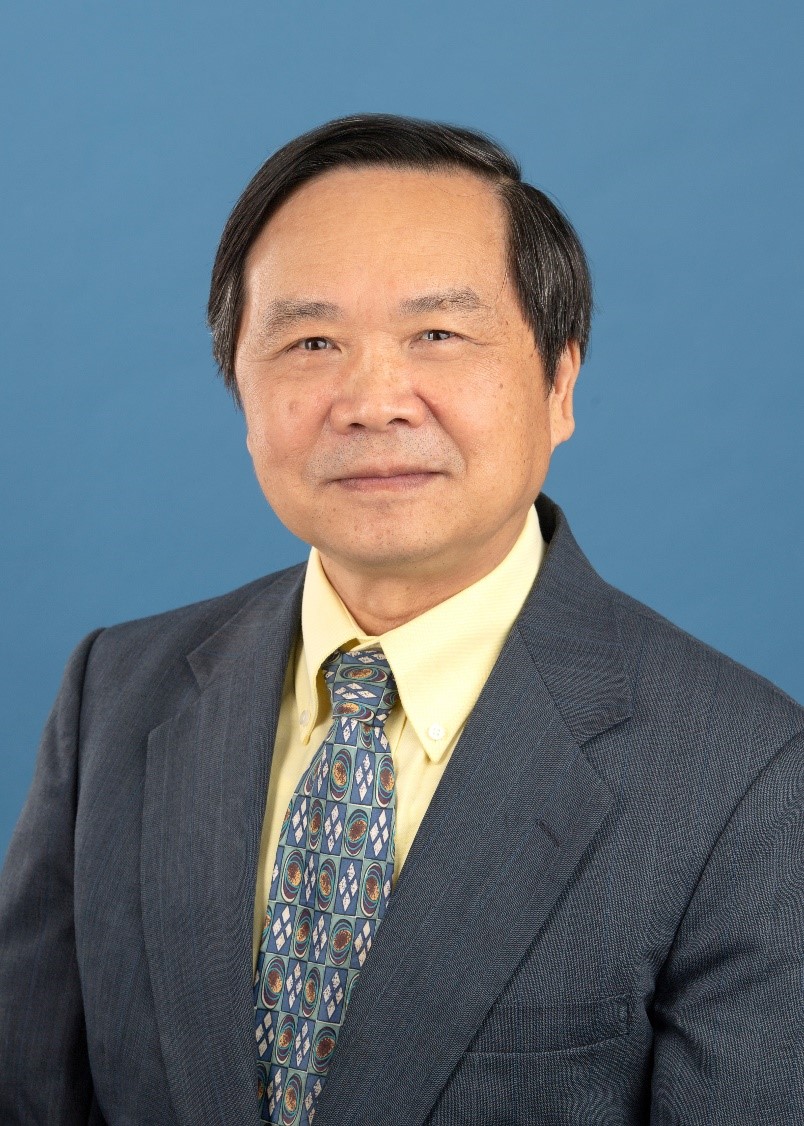
Hongwei Hsiao, Robotics Track Chair
Texas A&M University
|
Dr. Hongwei Hsiao is a Professor and the Rogelio Benavides Memorial Chair with Texas A&M University – Corpus Christi. His research covers big data and artificial intelligence for protective gear sizing and design for diverse workforces, first responder technology, personal protective equipment 3-dimensional dynamic fitting and performance assessment, hazard investigation and control, and multi-system smart technology integration. He is retired chief of the Protective Technology Branch and coordinator of the Center for Occupational Robotics Research, National Institute for Occupational Safety and Health (NIOSH). He received his degrees from Cornell University and the University of Michigan and has held engineering and management positions in both the manufacturing industry and the U.S. Government. He also has taught human factors engineering for 20 years before joining Texas A&M University system. Dr. Hsiao has headed numerous programs and projects in safety research. He also coordinated development of strategic goals for the NIOSH robotics center and managed center resources and seminars. He managed several laboratories for NIOSH, including the Virtual Reality, Anthropometry Research, High Bay, Vehicle Safety, Digital Modeling, Human Factors, Robotics Research, and Sensor Development Laboratories during 1996-2021. He now directs the Safety Evaluation and Research (SEAR) Laboratory and coordinates a smart technology advancement research (STAR) initiative for industrial innovation for Texas A&M University – Corpus Christi. An editorial board member for eight scientific journals, Dr. Hsiao has written or contributed over 180 publications and patents in human factors and engineering innovation for injury control. He was credentialed as a Silvio O. Conte Senior Biomedical Research Service Fellow by the Government Executive Resources Board in 2003. He is an Emeritus Fellow of the Human Factors and Ergonomics Society (US HFES) and Chartered Institute of Ergonomics and Human Factors (UK CIEHF).
|
|
|
|
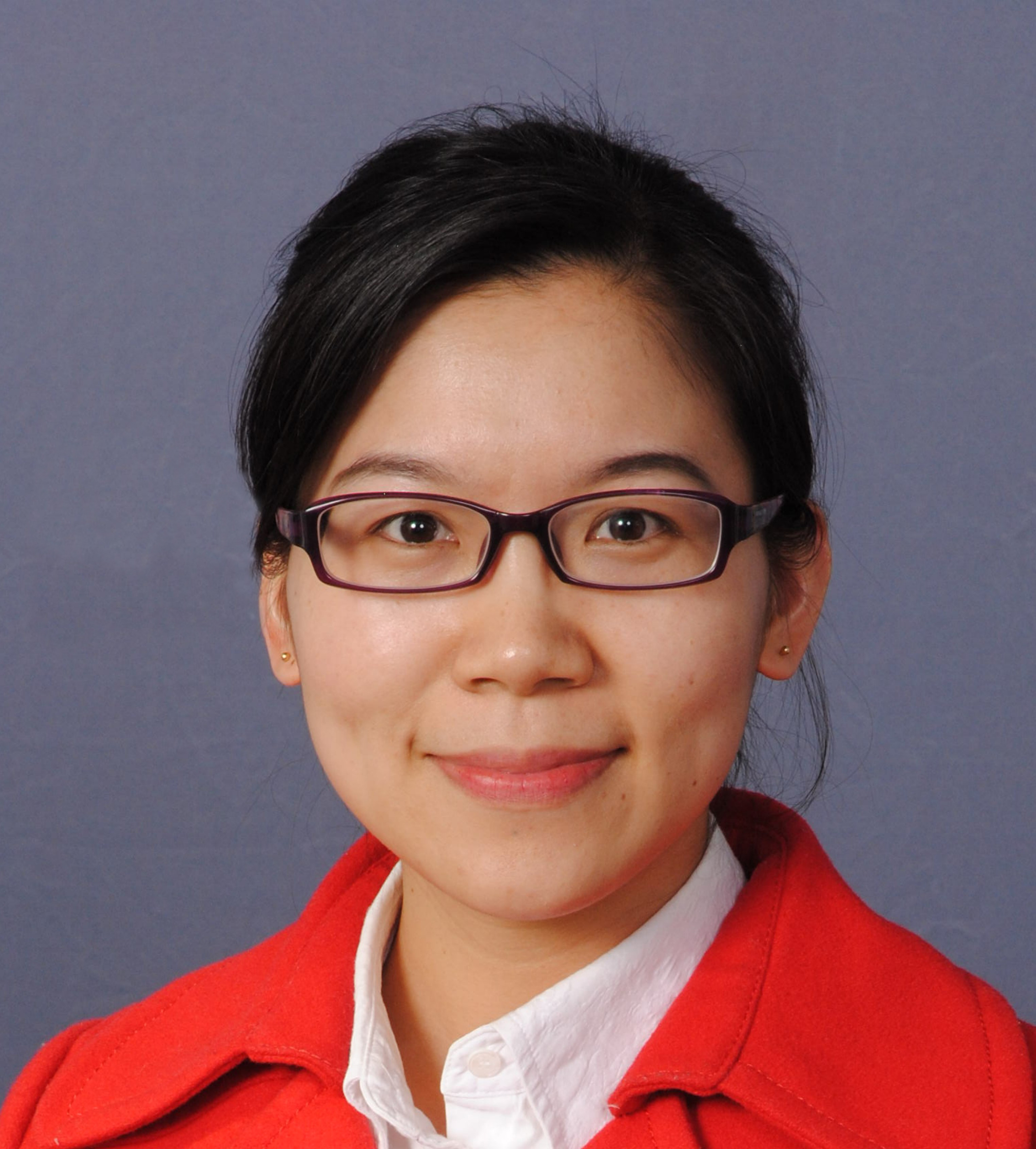
Lixiao Huang, Robotics Track Co-Chair
Arizona State University
|
Dr. Lixiao Huang is an Associate Research Scientist at the Center for Human, Artificial Intelligence, and Robot Teaming (CHART) within Global Security Initiative (GSI) at Arizona State University. She completed her Ph.D. in Human Factors and Applied Cognition from North Carolina State University in 2016 and Postdoc in the Humans and Autonomy Lab (HAL) at Duke University in 2018. She is the founding chair of the Human–AI–Robot Teaming (HART) technical group at Human Factors and Ergonomics Society, advocating cutting-edge HART research, interdisciplinary collaboration, and advanced testbeds and analytics. She has worked on ARL, ONR, and DARPA research projects as a research lead. Dr. Huang's research interests include 1) Human–AI–Robot Teaming effectiveness; 2) Humans’ responses (i.e., emotional states, behavioral patterns, and cognitive processes) to robots and technologies, especially emotional attachment, intrinsic motivation, coordination, trust, and metacognition; 3) The design of human-robot systems using Human Factors methods to make AI and robots effective, safe, user-friendly, trustworthy, and engaging.
|
|
|
|
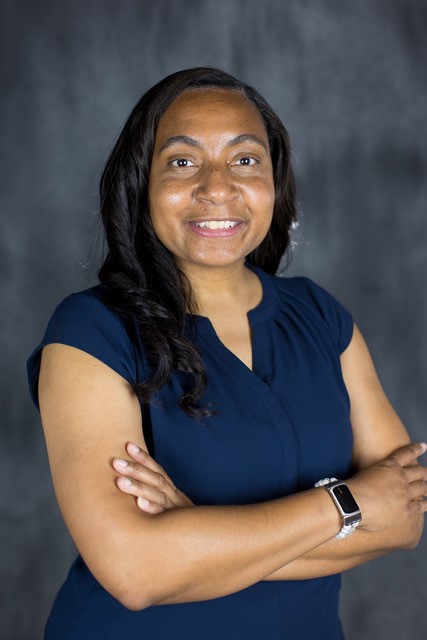
Nia Jetter, Cybersecurity Track Co-Chair
Amazon
|
Nia Jetter is passionate about changing the world through innovation, technology planning, teaching, mentoring and solving tough problems in Autonomy and AI that can be applied across different platforms. She has a dedicated focus on helping people who may not have easy access to educational materials to understand topics like artificial intelligence. Nia is enthusiastic about working the human-AI interface as artificial intelligence is further integrated into our society.
Nia is an Aerospace Engineer who has 20 years of experience in the Aerospace Industry and has developed key algorithms in supporting a variety of programs across the product-lifecycle from design and development to mission and anomaly resolution and through customer delivery and support. In January 2021, Nia left the Aerospace Industry as a Technical Fellow to join Amazon as a Senior Principal Technologist in Robotics. In this role as a leader in technical development for autonomy as well as strategic planning for robotics and other autonomous applications, Nia has so far led an Autonomous Mobile Robot that will be deployed in an unstructured environment through Preliminary Construction Review for Safety Certification as well as establishing best engineering practices for the product as Chief Engineer.
Nia has a bachelor’s degree in Math with Computer Science and a minor in Earth Atmospheric and Planetary Sciences from MIT as well as a Master’s Degree in Aeronautical and Astronautical Engineering from Stanford. Nia enjoys reading (especially science fiction), astronomy, baking, travelling and dancing. For more information, please see her website: www.niajetter.com.
|
|
|
|
 Brian Laughlin, Extended Reality Track Chair Brian Laughlin, Extended Reality Track Chair
Boeing Research & Technology
|
Dr. Brian D. Laughlin, TF is a Technical Fellow and Systems Engineer, for the Enterprise Point of Use in the area of Mobile, Wearables and Internet of Things (IoT), for Product Systems, serving both the Commercial and Military businesses at the Enterprise level.
Dr. Laughlin, is a veteran of the Aerospace industry with over 30 years of experience. He started at Boeing in 1991, has filled a plethora of diverse rolls at Boeing, providing him a broad range as well as depth of expertise, including: Certified Sheet Metal and Composites Mechanic, Process Engineering Analyst (liaison planner, engineer, and tool coordinator) Computing Process Analyst, Software Developer, Certified Lean coach, IT Architect, and Course Developer/ Instructor/ consultant on many topics including: Human Centered Design, Systems Thinking, Lean, Innovation, Leadership/ Coaching/ Mentoring, and Internet and Mobile Computing technologies, to name a few. Laughlin also served as a Graduate Teaching and Graduate Researching Assistant, for the National Institute for Aviation Research (NIAR) in the Software Engineering lab where he helped pioneer web technologies in the early 90’s.
Laughlin is a prolific inventor, with many invention disclosures and patents that have resulted in a plethora of awards for his innovative and impactful work. His awards include: 2 Technical Replication, 3 Special Invention, 6 Meritorious Invention, and an Ed Well’s Initiative Award, for his work that has resulted in Billions of dollars in savings across the enterprise for Boeing and the Aerospace market, as well as created new Revenue Generation opportunities for Boeing. His expertise and diverse background, coupled with his passion for problem solving and teaching have provided him many opportunities to speak, author articles, create and teach technical and leadership courses, serve on multiple advisory boards, and mentor across educational and industrial sector.
Laughlin holds a Bachelor of Arts in Psychology, a Master of Arts in Experimental Psychology, and a Ph.D. in Human Factors Psychology, all from Wichita State University.
|
|
|
|
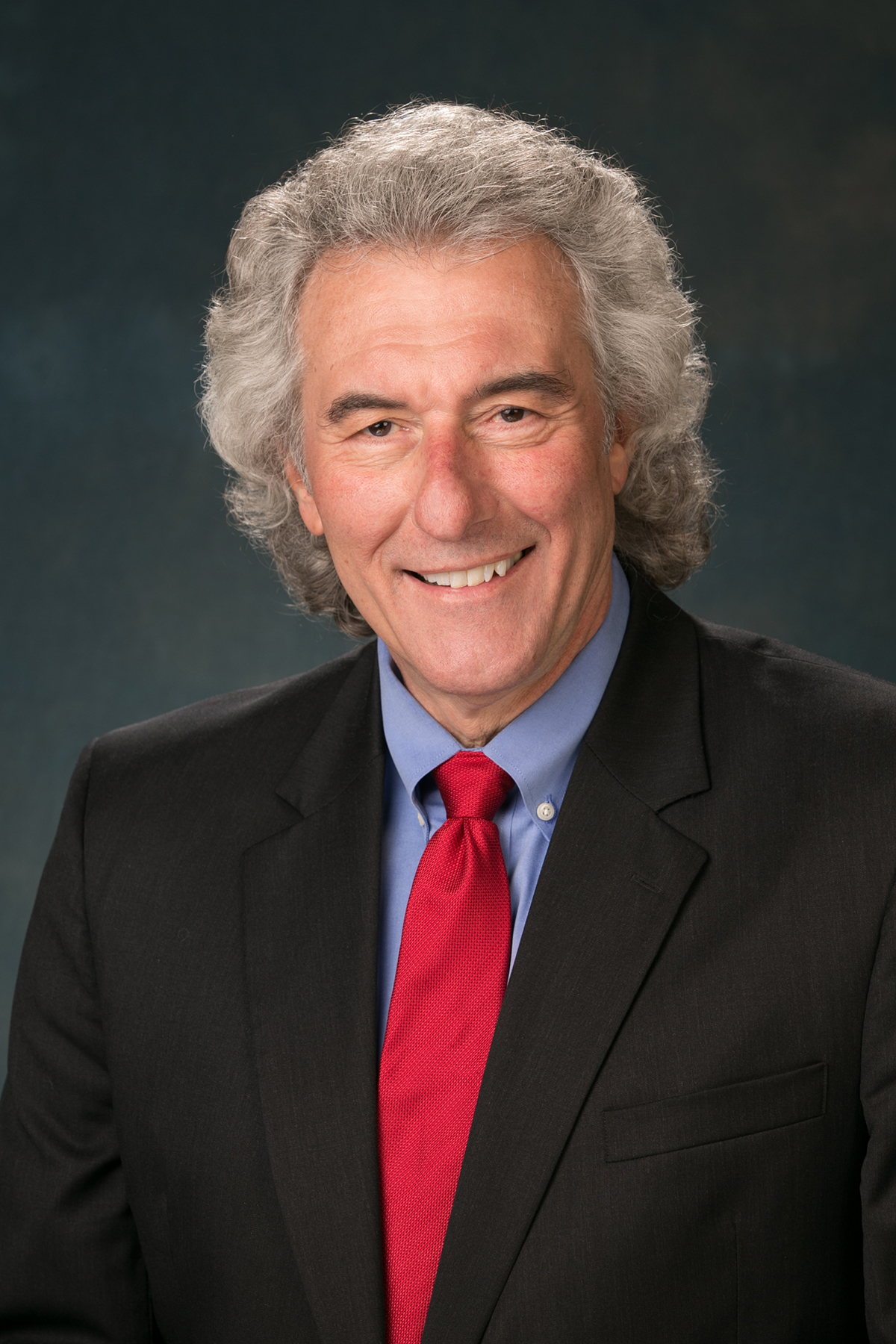
Bill Marras, Exoskeletons Track Co-Chair
Ohio State University
|
William S. Marras, Ph.D., is the Distinguished University Professor and holds the Honda Endowed Chair in Integrated Systems Engineering at the Ohio State University. He serves as the Director of the Spine Research Institute at the Ohio State University where he leads NIH, NSF, DoD and privately funded research efforts. Dr. Marras also holds joint academic appointments in the Department of Orthopaedic Surgery, the Department of Neurosurgery, and the Department of Physical Medicine & Rehabilitation. His research is focused on understanding multidimensional causal pathways for spine disorders through quantitative epidemiologic evaluations, laboratory biomechanical studies, personalized mathematical modeling, and clinical studies of the lumbar and cervical spines. His findings have been published in over 300 peer-reviewed journal articles, hundreds of refereed proceedings, and numerous books and book chapters including a book entitled The Working Back: A Systems View. Professor Marras has been active in the National Research Council (NRC) having served on over a dozen boards and committees and has served as Chair of the Board on Human Systems Integration for multiple terms. He has also served as Editor-in-Chief of Human Factors is currently Deputy Editor of Spine and has served as the President of the Human Factors and Ergonomics Society. Dr. Marras holds Fellow status in six professional societies and is an elected member of the National Academy of Engineering (the National Academy of Science, Engineering and Medicine), recorded a TEDx talk entitled “Back Pain and your Brain” and has been featured on NPR’s All Things Considered. |
|
|
 Donald R. Peterson, Exoskeletons Track Co-Chair Donald R. Peterson, Exoskeletons Track Co-Chair
Northern Illinois University |
Dr. Donald R. Peterson is a Professor of Mechanical Engineering at Northern Illinois University and served as the Dean of the College of Engineering and Engineering Technology at NIU from 2017 to 2023. He is also an affiliated professor in the Department of Biomedical Engineering at Texas A&M University and a Fellow of the American Institute for Medical and Biological Engineering (AIMBE). Dr. Peterson is a graduate of Worcester Polytechnic Institute, majoring in Aerospace Engineering (BS) and Biomechanical Engineering (BS) and a graduate of the University of Connecticut, earning degrees in Mechanical Engineering (MS) and Biomedical Engineering (PhD). Dr. Peterson’s experience in biomedical engineering and medical research has been focused on measuring and modeling injury biomechanics and human, organ, and cell performance, including exposures to various physical stimuli and the subsequent biological or physiological responses. His research has involved the investigation of injury mechanisms and human–device interaction and has led to the generation of new technologies and systems, such as personal protection technologies, occupational exoskeleton systems, robotic exoskeleton assist devices for hemiplegic rehabilitation, long-duration biosensor monitoring and reporting systems, novel surgical and dental devices and instruments, smart medical devices for home patient care, and biotechnology systems. Dr. Peterson currently serves as the Chair of the ASTM International Committee F48 on Exoskeletons and Exosuits, the Chair of the US Technical Advisory Group (TAG) for ISO / TC 108 on Mechanical Vibration, Shock, and Condition Monitoring, the Chair of ANSI S2 WG39, and S3 WG39, both on Human Exposure to Mechanical Vibration and Shock. Dr. Peterson has published over 130 peer-reviewed scholarly works and is an Editor-in-Chief for The Biomedical Engineering Handbook, published by CRC Press.
|
|
|
|
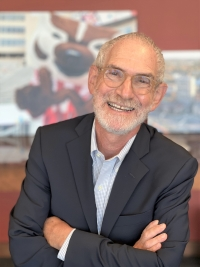 Robert G. Radwin, Robotics Track Co-Chair Robert G. Radwin, Robotics Track Co-Chair
University of Wisconsin-Madison
|
Professor Robert G. Radwin is the Duane H. and Dorothy M. Bluemke Professor in industrial and systems engineering and biomedical engineering at the University of Wisconsin-Madison. He specializes in the physiological and biomechanical aspects of work with a view to improving the design of jobs, equipment, products and environments. Professor Radwin frequently works with a range of industry and government organizations. He has received awards as an innovator and researcher, is a fellow of six professional societies, has served on numerous national committees, and is Editor-in- Chief of the journal Human Factors. Professor Radwin is founding chair of the University of Wisconsin-Madison Department of Biomedical Engineering and is a Discovery Fellow at the Wisconsin Institute for Discovery.
|
|
|
|
Prashanth Rajivan, Cybersecurity Track Chair
University of Washington
|
Prashanth Rajivan is an assistant professor of Industrial and Systems Engineering at the University of Washington. His research agenda is on the intersection of human factors, simulation modeling and computer security. Prior to this appointment, Prashanth Rajivan was a Postdoctoral Research Fellow at the Department of Social and Decision Sciences, Carnegie Mellon University, Pittsburgh. He holds a Ph.D. in Human Systems Engineering (2014) and M.S. in Computer Science (2011) from Arizona State University, USA. He received the National Science Foundation (NSF) CAREER award in 2022. His work on multi-agent models of teamwork in cyber defense was awarded the best student paper at HFES annual conference in 2014. His dissertation work was a finalist in the Human Factors Prize on Cyber Security in 2017. He is currently the chair of cyber security technical group at HFES, Co-chair for 2022 USEC (Symposium of Usable Security and Privacy) and is on the board of Modeling and Simulation Society.
|
|
|
|
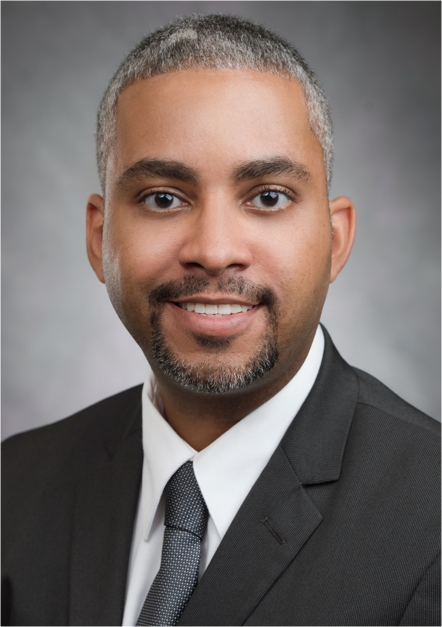
Christopher Reid, Exoskeletons Track Chair
The Boeing Company
|
Dr. Christopher Reid is a Technical Fellow and Boeing Designated Expert in both the Human Factors & Ergonomics discipline and wearable technology. Based out of Charleston, SC, he is the current Technology Architect for Boeing's Environment, Health & Safety (EHS) organization. He is also an Adjunct Professor of Practice at Clemson University’s Department of Industrial Engineering. Prior to Boeing, Dr. Reid worked for Lockheed Martin on astronaut spacesuit assessment as a Human Factors & Ergonomics Discipline Lead at NASA Johnson Space Center and as a Human Factors Engineer for the US Army Natick Labs, assessing Warfighter personal protective equipment. Outside of Boeing, he volunteers his time on a number of technical associations. He was the Human Factors & Ergonomics Society 2021-2022 President, is a member of ASTM International’s Board of Directors and Chair of the ASTM F48.02 Subcommittee on Human Factors & Ergonomics for Exoskeletons and Exosuits. He’s also an advisor on the National Safety Council’s Musculoskeletal Disorder (MSD) Solutions Lab Advisory Council and Delegates Committee. He is a recipient of both the 2018 Rising Star Award from the National Safety Council and the 2020 Black Engineer of the Year Award for Outstanding Technical Contribution in Industry. He is a graduate of the University of Central Florida, with degrees in Electrical Engineering Technology (BS) and Industrial Engineering (MS and PhD).
|
|
|

Menekse Salar Barim, Robotics Track Co-Chair
National Institute for Occupational Safety and Health (NIOSH)
|
Dr. Menekse Salar Barim was born in Monterey, CA in 1988. She earned her doctorate degree in Industrial and Systems Engineering with an emphasis in Occupational Injury Prevention in fall of 2017 from Auburn University. She also earned a MISE with an emphasis in Occupational Safety and Ergonomics in 2013 from Auburn University. She has 2 undergraduate degrees, Industrial Engineering (BS) and Management (BA) from Atilim University in Turkey. As a student, she conducted cutting edge MRI research to better define and estimate biomechanically relevant low back structures to improve ergonomic modelling. She has won numerous academic awards and was the captain of the “Ergo Divas” team that won the international Ergonomic Design Competition for Student Teams besting over 50 teams from more than 35 universities. She is active in professional societies such as American Society of Safety Professionals (ASSP) and the Human Factors and Ergonomics Society (HFES) where she has served as student chapter president. As a doctoral student, she organized and ran an international safety and health workshop that brought 4 Auburn OSE faculty to Turkey where they conducted multiple workshops and exchanged safety and health information with Turkish academics and safety professionals.
In 2018, she joined the National Institute for Occupational Safety and Health (NIOSH) as a research fellow. Since 2018, she has been with the Human Factors and Ergonomics Team (HFET). Her current research interest includes biomechanics, musculoskeletal disorders, motion analysis, ergonomics, human performance and exoskeletons. She recently works on projects related to ergonomics surveillance, the development of next generation ergonomic assessment tools, the effect of back assist exoskeletons in manual handling in WRT sector and longitudinal effects of shoulder exoskeletons on company injury records in the manufacturing sector.
|
|
|
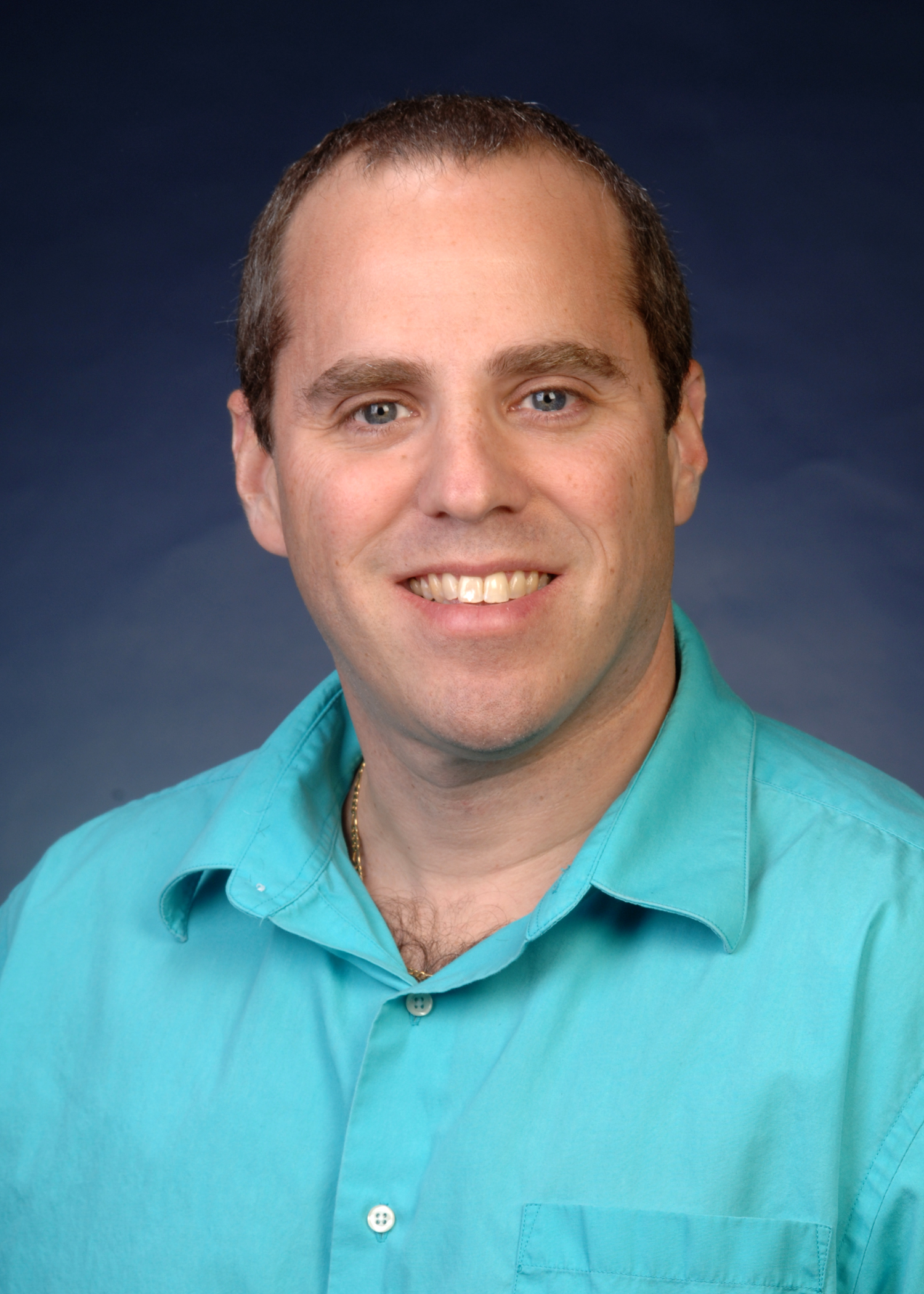  Craig Schlenoff, Robotics Track Co-Chair Craig Schlenoff, Robotics Track Co-ChairNational Institute of Standards and Technology (NIST)
|
Dr. Craig Schlenoff is the Group Leader of the Cognition and Collaboration Systems Group, the Program Manager of the Measurement Science for Manufacturing Robotics Program, and the Program Manager of the Automated Vehicle Program in the Intelligent Systems Division at the National Institute of Standards and Technology (NIST). He has led multiple million-dollar efforts addressing performance evaluation of automated vehicles, industrial robotic systems, and advanced military technologies. He has published over 150 journal and conference papers, guest edited three journals, guest edited three books, and written four book chapters. He is the co-chair of the NITRD Artificial Intelligence Interagency Working Group, the Associate Vice President for Standardization in the IEEE Robotics and Automation Society, the co-chair of the IEEE Robot Task Representation Working Group, and was previously the chair of the IEEE Ontology for Robotics and Automation Working Group. He has also served as the Program Manager for the Process Engineering Program at NIST and the Director of Ontologies at VerticalNet. He also teaches two courses at the University of Maryland, College Park: “Calculus” and “Building a Manufacturing Robot Software System.” He received his Bachelor’s degree from the University of Maryland, his Master’s degree from Rensselaer Polytechnic Institute (both in mechanical engineering), and his PhD from the University of Burgundy in computer science.
|